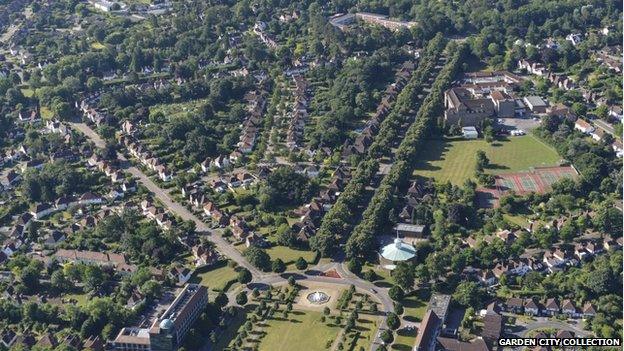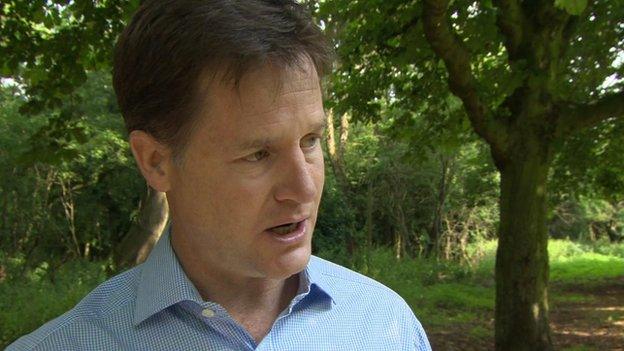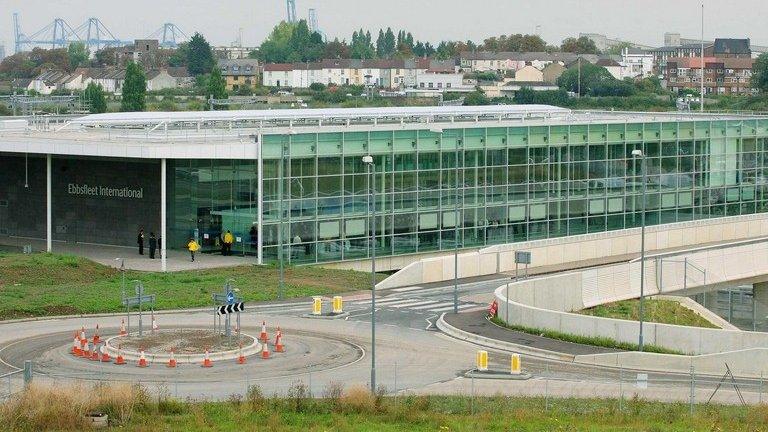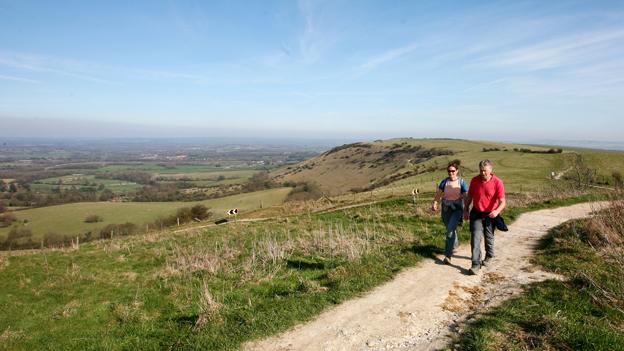New garden cities plan wins £250,000 Wolfson Prize
- Published

Plans for new garden cities take inspiration from current examples such as Letchworth in Hertfordshire
A plan to give "garden city" status to up to 40 English towns has won the £250,000 Wolfson economics prize.
This year's prize focused on garden cities, and the government said it was watching with interest.
Winner David Rudlin suggested Norwich, Northampton, Oxford and Rugby were among places which could be expanded as part of the scheme.
Many of the towns could be doubled in size, providing hundreds of thousands of new homes, he said.
The question for entries was: "How would you deliver a new garden city which is visionary, economically viable and popular?"
A government-run process on identifying options for new garden cities is already under way.
Garden cities are large-scale developments in which, according to the government, external, certain features can be "hardwired into designs from the beginning".
The government has said it does not want to "impose any definition of what garden cities are", but features can include "quality design, gardens, accessible green space near homes, access to employment, and local amenities".
Britain's oldest garden city is Letchworth in Hertfordshire, dating from 1903.
'Not imposed'
Mr Rudlin, of urban design consultancy Urbed, said the next government should introduce a Garden Cities Act under which towns and cities could bid for garden city status, but he said settlements should not have it imposed on them.
The towns and cities he identified for possible expansion also include Reading and Stafford.
In 2013, the construction of 109,370 new homes was completed in England - the lowest figure for four years - but government figures suggest, external 221,000 new homes are needed every year in England and Wales.
Oxford was one of the cities identified by Mr Rudlin, and Oxfordshire County Council leader Ian Hudspeth said he welcomed the "stimulus" that the Wolfson Prize had given to the debate.
"Our economic plan proposes that 80,000 new jobs and 100,000 new homes need to be built by 2031 across the county," he said.
"Therefore, we cannot rely on small, short-term fixes - we need to think of larger, bolder solutions."
Where did garden cities start? Tom Heap reports
Prize founder Lord Wolfson said he was "delighted" the competition had attracted "so many powerful and creative proposals".
"David's entry is a tour de force of economic and financial analysis, creative thinking and bold, daring ideas," he said,
"I congratulate him and his team on a fantastic contribution to the debate on how we can deliver great new places for future generations to live, work and play in."
BBC local government correspondent Mike Sergeant said Deputy Prime Minister Nick Clegg had been a "particularly vocal supporter" of new garden cities, taking inspiration from long-standing garden cities including Letchworth and Welwyn.
The Wolfson Prize is said to be the second-biggest cash award in economics - after the Nobel Prize.
A £50,000 runner-up prize was given to housing charity Shelter, which proposed a settlement of up to 48,000 people at Stoke Harbour on the peninsula between the Thames and Medway rivers.
- Published3 August 2014

- Published4 June 2014

- Published14 April 2014

- Published16 March 2014

- Published14 November 2013
